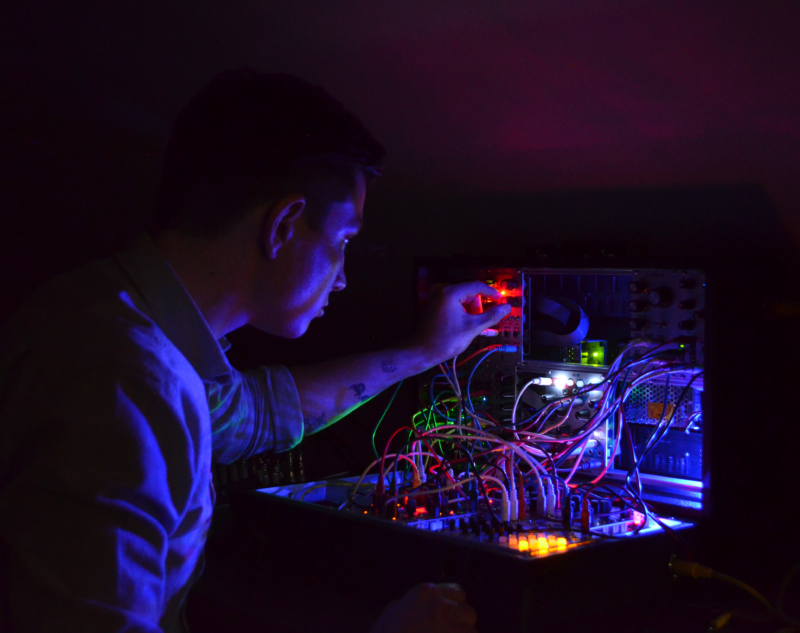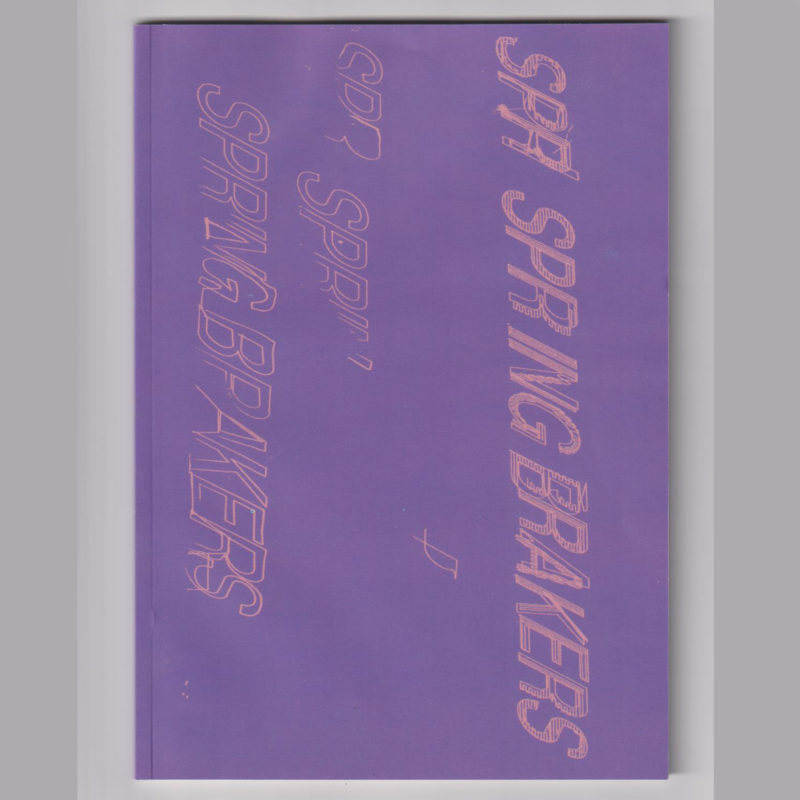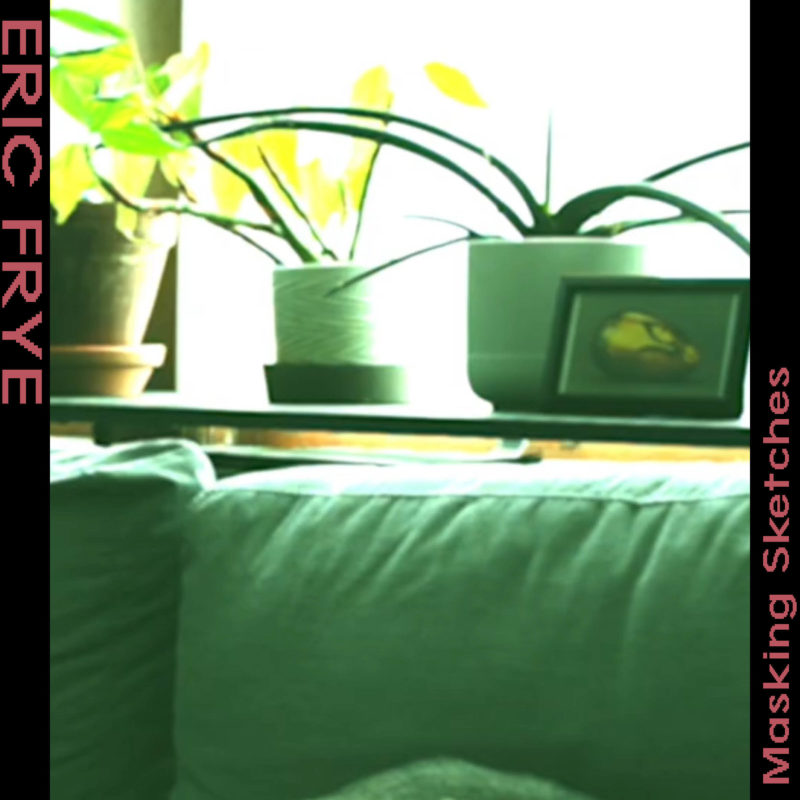Eric Frye

NL
Let’s start with your most recent release. It has the very intriguing title “Some Consequences of Four Incapacities”. What does it mean?
EF
The title comes from a text of the same name by Charles Sanders Peirce.
NL
I reminds of a book I’m currently reading which is called Boring Formless Nonsense. The writer establishes an Aesthetics of failure, and points out the importance of Failure in experimental music and art. Is this concept important to you? It makes sense in a way, because although it has this very serious framing (cdr. The text & the fact you recorded it at the university), it has something very playful, and random.
EF
Methodological and intuitive approaches are integral elements in my compositional practice. The seemingly random aspects that you reference are constructed intentionally to be perceived precisely in that way, and, in essence, to challenge the common / ingrained modes perception. This might also be viewed, in certain cases, as a form of antinarrative compositional strategy.
Regarding ‘Failure’ I’m not sure I follow you. Perhaps some specific examples would help clarify exactly what you’re referencing. Although this concept is not disinteresting to me, it isn’t necessarily something that I would readily apply to my own work. Intentional and focused utilization of ‘Failure’ in music seems to be linked stylistically to improvisation, glitch, and noise, none of which I would self ascribe. ‘Playful’ is a bit easier to sympathize with when connected to my work, however, it’s certainly a slippery slope. In my experience, many visual and auditory links to the brain are perceived as ‘playful’ when experienced by the perceiver.
Defining a sound or visual art practice as playful seems to connote a disregard for logic and the absence of a concentrated, considered endeavor. I wonder if this term is applied with equal abandon in other industries. Thaemlitz makes a good case against the ideology of a music practice being shackled to terms like “fun” “playful” “carefree” and “inspirational”. This can have a detrimental effect on composers and artists. Language of this type that commonly surrounds these practices is very generalizing and assumptive which can be corrosive and debilitating because it creates boundaries which not only limit the scope and impact of sound, but also makes approaching sound making or art making in terms of a recognized labor practice nearly impossible.
NL
The promotext about Some Consequences states that you are researching new modes of perception and spatial cognition? How so?
EF
As I briefly mentioned above, using antinarrative techniques is a very direct way of recalibrating common patterns of perception. When experienced in conjunction with spatial audio, the cognitive streams are interrupted further.
NL
It also states that your music is a manifestation new bodies of new mathematical concepts. First of all, I’m curious if I understood this well, by asking what does it actually mean? Second, the reason why you do this, seems to create new ways of looking or hearing. Can you explain how it actually does? I also wondered if you are consciously ignoring the concept of emotion in music? It seems now that you are in search of Absolute Music, which exists on itself, without relation to the ‘real’ world, without triggering human emotions (which isn’t a bad nor good thing).
EF
Fernando Zalamea wrote a text for my new LP. This text focuses specifically on the links between my compositional output and abstract and radical mathematical concepts such as sheafification. There are conceptual links to Grothendiek’s sheafs as a topological representation of electroacoustic diffusions.
It seems that sound cannot help but be linked to emotion is some way. Oftentimes experiences of perplexity, anticipation, irritation, surprise, attraction, detraction, dissociation, physical and immaterial interaction, are all connected to my work. No, I am not seeking to consciously ignore emotion, In my experience, the sounds are emotionally affecting. These sounds also evoke mental, and physical reactions, absolutely.
As the titles, accompanying texts, compositional palette, and structure would suggest, these pieces are not merely showcases of technical construction but conceptually considered works enabling a multitude of interpretive gazes and evocative personal connections that vary from experience to experience. Whatever links are drawn, be it linguistic, mathematical, philosophical, emotional, the work is evocative and complex in its reflection of its surroundings. Absolute Music seems to be an archaic concept without much contemporary bearing.
NL
Are you an heir of the historical avantgarde music, and especially of their ideas to create new sounds, new music by means of new technology? Do you see this as still relevant in a postmillennial decade, in which everything seems to be thought, done and created? Do you feel that their is some sort of weariness in western culture, as if has reached it’s limits in renewing things?
EF
When composing with any system over a period of time, new and unexpected events will appear intermittently. Also, the collaborative effort in working with software designers is always creating new angles, strange specificities, and unexpected diversions. One look into software and hardware design, not to mention contemporary composition, will reveal the unmistakable and continued transitions that are taking place. Curtis Roads mentioned to me that he is developing an extremely sophisticated spherical audio system. One major obstacle in this ongoing project is funding. ‘Avantgarde’ is another archaic term that is historically relevant but not contemporarily viable. As a society, we are still approaching sound and music as a simple stereo reality in day to day life. This is directly linked to the market and what is currently deemed feasible to produce and
consume. We have a long way to go to mature from our infancy (let’s not get started on the current state of radicalized sexism and racism in the world). Mutations will always persist and will simultaneously befuddle and obfuscate misplaced attempts at concrete definition.
NL
How long are you making music? And how does music relate to your visual art?
EF
I was intently listening to the sound of air conditioning units when I was 5 years old. I was playing abstract improvisational pieces on my greatgrandparents’ baby grand piano when I was around 10 years old.
They are inseparable, one and the same.
NL
How was it to work in an anechoic chamber? I heard stories that you cannot stay there for a couple of minutes, otherwise you start to hallucinate due to the lack of visual and auditory input. Does this has something to do with the abstract and absolute nature of your music?
EF
The anechoic chamber is a very useful compositional tool. I have heard many stories of people sleeping contently in them for several hours. My experience with anechoic chambers is not alienating or antagonistic. I have successfully utilized the chamber’s ability to isolate and refine certain characteristics of sounds. Anechoic chambers are extremely viable and should not be confined to academic or industry only practices. At Orfield Labs in Minneapolis, where I have spent much time composing and recording in the anechoic chamber as well as the multichannel studio, there is a specially built echo chamber (the polar opposite of the anechoic chamber) that I plan to work in during the coming months.
NL
I like the way you treated voices in the salon cdr. Are they concrete voices, or synthesized? In relation to the mathematical and absolute concepts why did you use the most human of all sounds, the voice, in some tracks?
EF
The voices are synthesized. What isn’t human?
NL
And last but not least, for the reader, who sometimes likes to connect to the person behind the music. Can you describe your room, and the neighborhood where you live in?
EF
I live in North Minneapolis not far from the fourth precinct that was occupied by protesters for several weeks following the brutal murder of Jamar Clark who was handcuffed by two police officers and then shot in the head.

